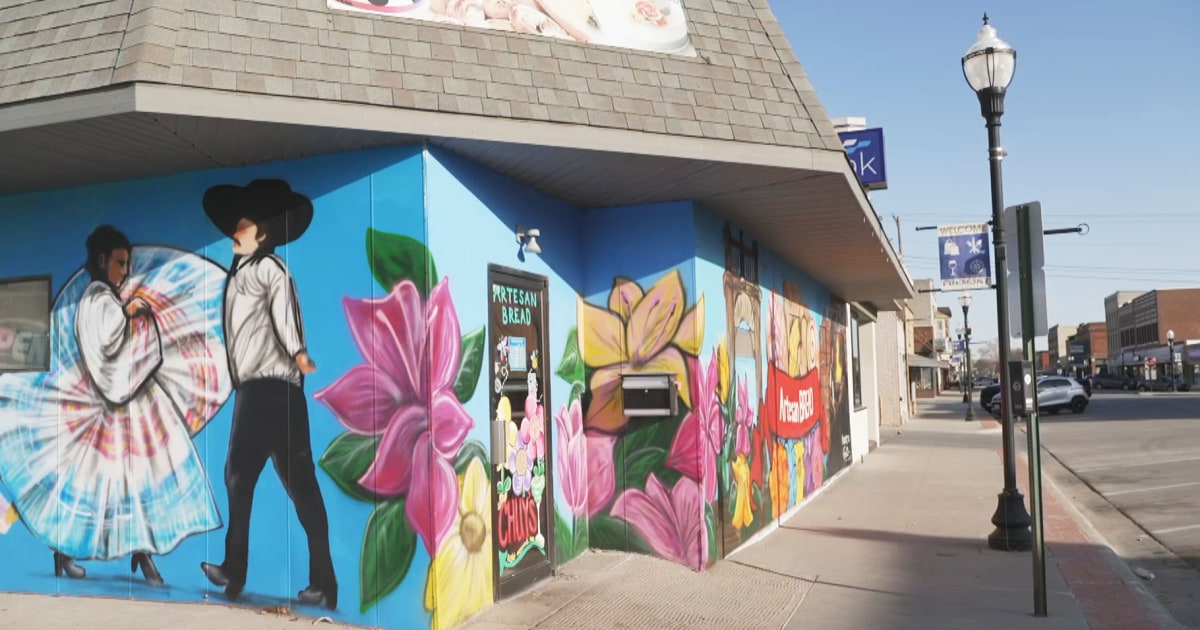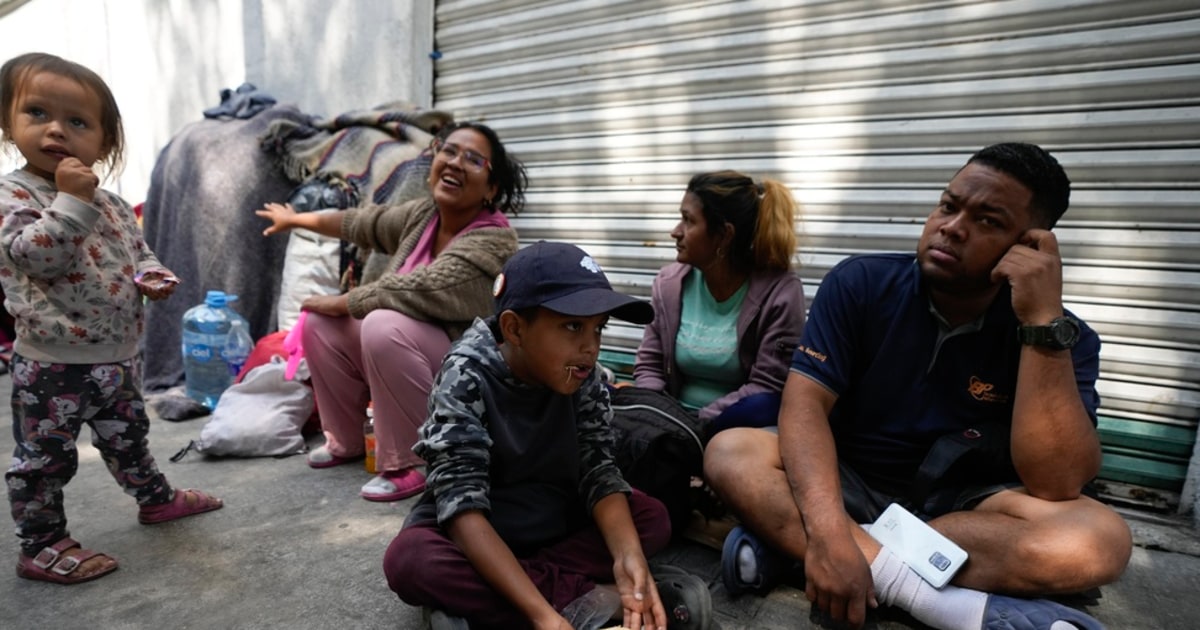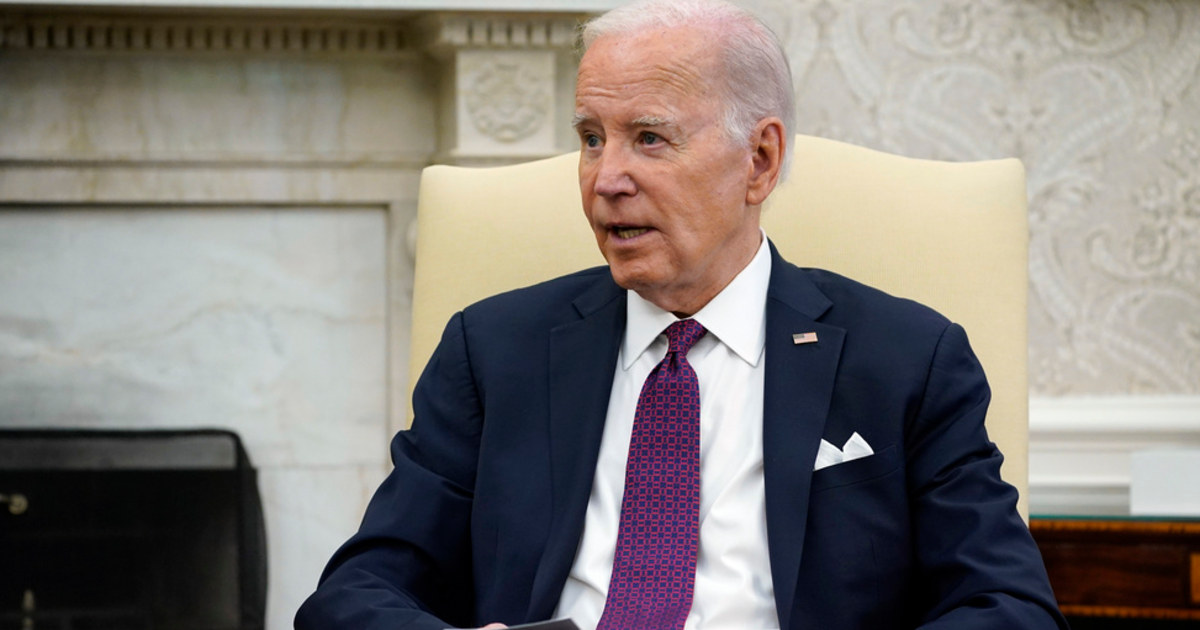It has been more than three years since Marcela García saw her 14-year-old son for the last time.
They emigrated together from Huehuetenango, Guatemala, in 2017, but were detained while crossing the border and
fell victim to the Trump Administration's family separation policy
.
“They didn't give me the opportunity there,” García sobbed in an interview with Noticias Telemundo from his native Guatemala.
"When I arrived, they hunted us and took my baby from me."
García decided to leave his village in the mountains near the Mexican border and leave behind everything he had
to protect the life of his son Victor, who was threatened by local gangs
.
[Where are the parents of the 545 children separated at the border? A judge urges the Government to find them]
"What happened?
They started hitting, they started threatening, so what did I say with my son?
I'd better go there, ”García said.
After being detained by the Border Patrol for entering the country without documents, García says she
was forced to sign papers in English that she did not understand
and that was how she was deported to Guatemala.
Victor was held in a detention center for migrant minors for three months, until the Department of Health and Human Services handed him over to his father, who has lived in the United States for 10 years.
Victor and his mother were separated under a pilot program designed by Stephen Miller, the president's immigration adviser, Donald Trump.
This program preceded the 'zero tolerance' policy, under which thousands of migrant children were separated from their parents.
Unlike the
2,800 families separated under the zero tolerance policy in 2018
, most of whom remained in custody when it was terminated by executive order, many of the more than 1,000 parents separated from their children under the pilot program (such as Garcia) had already been deported before a federal judge in California ordered they be reunited.
Víctor must appear before an immigration judge in January of next year.
García is afraid that they could deport him, because that would mean a return to the place that he had to leave because of gang threats.
“I only looked when it came out.
'Take care,' he told me.
'Because I'm leaving'.
I ran to hug him… I said he can't be left alone, ”Garcia recalled.
Huehuetenango, epicenter of emigration
Huehuetenango, a mountainous region near Guatemala's border with Mexico, has become a factory for emigrants.
Their communities have been among the most affected by the anti-immigrant policies of the Trump administration.
"Because of the levels of poverty, misery, the lack of opportunities here,"
Cardinal Álvaro Ramazzini, bishop of Huehuetenango, explains to Noticias Telemundo.
[The US embassy in Guatemala apologizes after posting a tweet about migrant children that sparked anger in the country]
Although there are no official figures, experts consulted by the BBC chain indicate that the coffee region is one of the epicenters of emigration.
"Extreme poverty, lack of access to basic services such as water or electricity, lack of health services, opportunities for decent education and work, and high levels of violence make migrating the only option for many people," he told the cited chain Carlos Eduardo Woltke, defender of migrants in the Office of the Human Rights Ombudsman in Guatemala.
The fall in international coffee prices and the import of corn from Mexico and the United States at a price up to a third cheaper have sunk the local economy.
As a consequence,
many young people have joined gangs that live off the extortion of peasants with relatives in the United States
.
In the quality of life index prepared by the United Nations Development Program, Huehuetenango is ranked second to last out of the 22 departments of Guatemala, only surpassed in the low standard of living by the neighboring department of Alta Verapaz.
[More than 250 migrants intercepted in a series of operations in Guatemala]
Although it is not officially known how many Guatemalans migrate irregularly each year, the number of deportations annually is a rough indicator of how many people make the dangerous journey north (and end up being returned).
Many of them
trying to flee from impoverished and violent regions in the north of the country
.
According to estimates by the newspaper El País, in the first half of 2019 around 15% of the more than 54,000 Guatemalans deported from the United States and Mexico came from Huehuetenango, at the end of that year almost 100,000 people were returned to Guatemala.
More than in 2018, when some 78,000 migrants were repatriated.
The coronavirus pandemic has slowed down emigration: from March 13 to October 9, only 16,037 people have been repatriated, according to figures from the Guatemalan Migration Institute.
But stories like Marcela García's highlight the great shortcomings that the communities of this region face and the latent impulse to emigrate north.
Correspondent Jenny Corado contributed to this report from Huehuetenango, Guatemala.
With information from NBC News, El País and BBC News.









/cloudfront-eu-central-1.images.arcpublishing.com/prisa/44EDHP4AVBFKXNYRQGFCZUX7LQ.jpeg)





